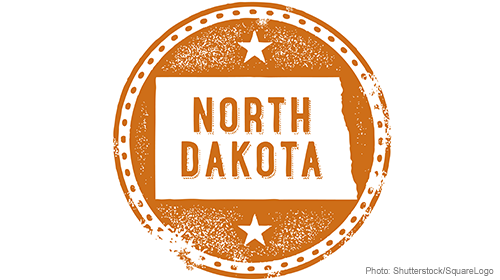Red State Myth Busting: North Dakota Voters Resoundingly Reject Restrictions on Abortion and Other Health Care


If you stand up for the health and dignity of women and families, you may see little to celebrate in Tuesday's election, but there are still bright spots. One of the brightest is North Dakota, where voters roundly rejected an extreme and dangerous ballot measure to ban abortion and other health care by a spectacular 30-point margin.
Purposely obscuring the intent to ban abortion and other reproductive health care, would have added to the state constitution the vague statement that "every human being at any stage of development" has an "inalienable right to life."
Fortunately, the main sponsor of the bill that placed Measure 1 on the ballot, North Dakota Senator Margaret Sitte, helped voters see through the subterfuge.
"This amendment," she , "is intended to present a direct challenge to Roe v. Wade."
Voters saw this measure for what it was: an attack on the ability of women and families – not politicians – to make deeply personal medical decisions. And voters didn't like it one bit. In addition to rejecting the amendment forcefully, voters ousted Sitte on Tuesday as well.
And this is hardly the first time that voters in conservative states have rejected attempts to restrict reproductive health care through ballot initiatives. Voters in Mississippi rejected personhood; Colorado voters have done so three times, most recently on Tuesday, by the same 2-to-1 margin we saw in North Dakota; and South Dakota voters have twice rejected outright bans on abortion, all since 2006.
We can take three lessons from this big win in North Dakota.
- First, unlike many politicians, voters resoundingly reject restrictions on reproductive health care, even in red states. So let this serve as a reminder of what is politically possible precisely because voters of many stripes share deep commitments to fairness, dignity, and women's health.
- Second, a broad range of messengers are ready to articulate those values. In North Dakota, those supporters include the state's sole remaining abortion provider as well as the only three physicians providing fertility services, such as in vitro fertilization; family physicians; faith leaders; and the AARP.
- Third, and most important, politicians are vulnerable when they openly take these medical decisions away from patients and hand them to politicians. That is why they tried to obfuscate their intentions in North Dakota, and it is why candidates with records opposed to women's reproductive decision-making ran away from those records in the most recent campaigns. Many candidates succeeded in that gambit . . . this time. Extremists will use the same misleading, sneaky tactics next time, and that's why it's so important to expose their true positions.
As the fate of extreme ballot measures has shown over and over – even in red states, and even given strong feelings about abortion – voters with a clear choice on who makes deeply personal medical decisions vote to keep those decisions with patients, not politicians.
Given the results of Tuesday's election, we have an uphill battle ahead, but the resounding victory in North Dakota reminds us that we can win.
Learn more about abortion and other civil liberty issues: Sign up for breaking news alerts, , and .

